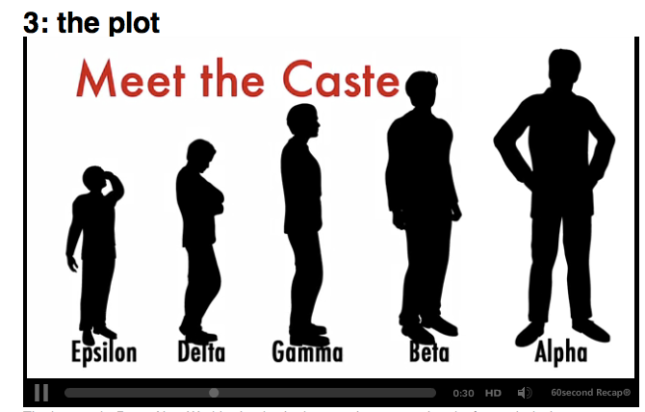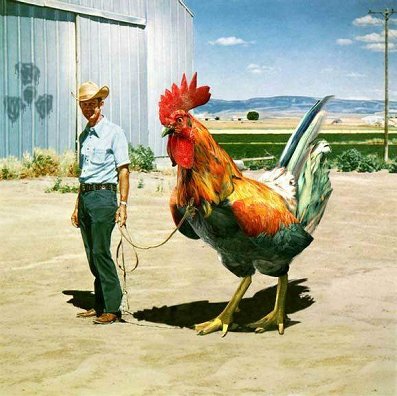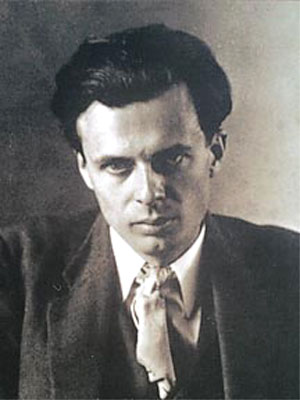Here’s a fun and useful site – 60 second recap. You might want to start with Aldous Huxley’s Brave New World – it looks at the main aspects using text and video. This is a bit from the plot section.
In Aldous Huxley’s Brave New World there’s no pain or discomfort or anything remotely unpleasant. Everyone is content. Citizens of this perfect society are programmed from birth to accept their destiny, whether it be as a lowly Epsilon, or as a mentally and physically perfect Alpha Plus. They’re programmed to be uber-consumers, which of course means that the economy in their society is in perfect shape, too. And socially? Well, let’s just say that there’s enough sex and drugs to keep everything purring.
Unfortunately, as in any “perfect” society, there are a few people who begin to question just what they’ve sacrificed to achieve this “Brave New World.” Questioning leads to action. Action leads to a blip in the perfect order of things. But don’t worry, the rulers of Brave New World’s ultra-creepy World State have everything under control…



